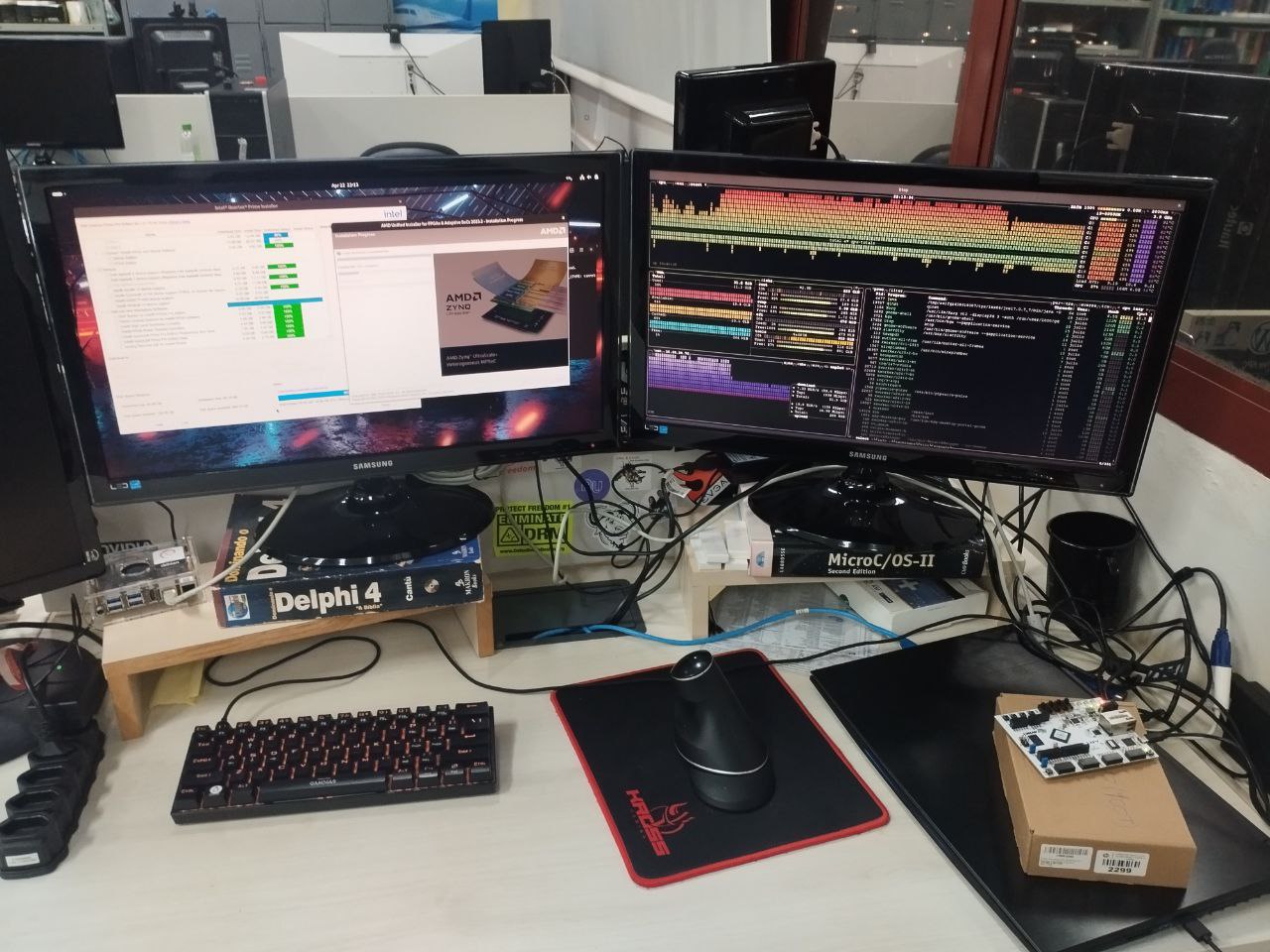Attending CryptoRave 2024
The conference
Last weekend I attended an annual conference called CryptoRave in São Paulo, Brazil. The event has a strong focus on security/privacy, cryptography, cyberactivism and software freedom, being part of a global movement that started with Edward Snowden’s leak of classified NSA documents in 2013.
There’s another fun twist: the conference is jam-packed with workshops and talks happening during the entire 24-hour duration of the event. There was a pretty wild variety of topics, ranging from things like IoT hacking and computer systems hardening for digital privacy, to the ethics of AI, transfeminist digital activism and the use of free software in national elections.
My experience as a volunteer
Even though it was my first year attending CryptoRave, a bunch of my friends from LKCAMP (my university’s FOSS research student group, which I’m a part of) were also volunteering, so I decided to sign up as well.
I worked at the event’s Linux Install Fest,
where we were helping people install Linux on their computers, freeing them from the
evil influence of Windows. :-) Surprisingly, this Install Fest wasn’t as eventful as the one that
LKCAMP organized earlier this year at our university – which had many interesting cryptids machines,
such as an Acer laptop with buggy PCIe power management firmware that completely broke NVMe on
Linux, and a 32-bit laptop with broken Wi-Fi card drivers (on top of being incredibly slow).
Nevertheless, it was still very fun and I got to meet many interesting people.
The most interesting machine I got my hands on was a Samsung Chromebook with a Samsung Exynos (32-bit ARM) CPU. Installing Debian on it was surprisingly easy, and I kind of fell in love with the thing – it is surprisingly neat (if a little small), and the build quality is very good. I was kind of sad to see it go, but the owner was super friendly and an overall chill guy, so it is in good hands now – and most importantly, running a free operating system. :-)
I also helped run one of the conference rooms late at night; all rooms were named after important figures in the context of CS/Cryptography/Free Software, and I worked at the one named Ian Murdock (the founder of the Debian project – what an honor, as well as a funny coincidence). One of the talks there really caught my attention; it was titled “The Cultural Logic of Computing: How the Ideology of Computationalism Strengthens the Status Quo”, and the speaker went over some very interesting philosophical/sociological considerations about how certain aspects of virtual spaces, even though inherent to the digital medium, start seeping into the real world and having an impact on the workings of society due to the pervasiveness of computing in our contemporary lifestyles. I really wish I could have taken notes during this one. :')
My experience as a speaker
This year I also gave a talk (slides in Portuguese here) with some friends from LKCAMP; you can find their socials here:
- Julio Avelar (github), our local hardware wizard, who also runs a really cool blog at https://bzoide.dev/, in Portuguese-only for now :-)
- Carlos Barbosa (github), our local free software expert
We talked about Open Hardware (as well as Free Software), going over its history, the different licensing models and the current ecosystem for developing Open Hardware. I took it as a personal challenge to present a demo of Linux running on an open-source RISC-V processor, using an open source toolchain from end-to-end. Here’s a picture of our battle station at the Computer Systems Laboratory (LSC), in Unicamp:

The little board on the right is an Arty S7 FPGA board from Digilent that we used for the demo. My initial plan was to use a Lattice board (Colorlight i9) in order to be able to use an open-source bitstream generator (prjtrellis) to achieve a fully end-to-end open source toolchain, but I ran into issues getting the Linux + rootfs images to fit in the board’s 8MB of SDRAM. The (mostly) open-source stack we used goes as follows:
- We ran the VexRiscv-SMP CPU, a 32-bit RISC-V processor with 2 cores
- On top of this, we used Litex to generate a SoC design to run on the FPGA alongside VexRiscv
- The FPGA toolchain we used consisted of:
- Yosys for synthesis
- nextpnr for placement and routing
- Vivado for bitstream generation – sadly there are no open-source bitstream generation tools for Xilinx boards yet :-(
- OpenFPGALoader for loading the bitstream to the Arty S7 board
- Buildroot for generating a minimal rootfs and a suitable Linux kernel image for the board
Even though this was my first time doing anything of this scale with FPGAs, we somehow succeeded in getting Linux 6.1 running on the Arty S7, which was awesome. The presentation also went pretty smoothly and there were lots of interesting questions from the audience, so I consider this a success. I learned a lot from the experience. :-)